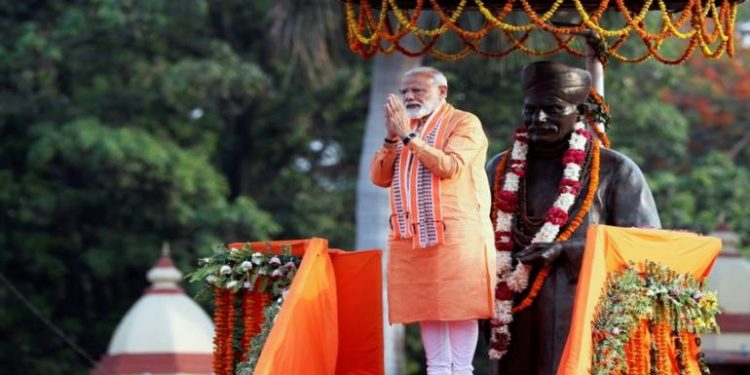Nashik, April 25: The Bharatiya Janata Party (BJP) and its Hindu nationalist ally, Shiv Sena, face a big electoral challenge in critical Maharashtra where rural distress, unemployment and drought may hurt Prime Minister Narendra Modi’s bid for a second term.
Strategists already expect the BJP to lose ground in the most populous state of Uttar Pradesh in the north, as voting is underway in a general election that began April 11 and ends May 19.
That coupled with possible losses in Maharashtra, home to the country’s financial capital, Mumbai, and the second most seats in parliament after Uttar Pradesh, would make it harder for the BJP-led coalition to win a governing majority, they say.
The BJP and Shiv Sena won 41 of 48 seats in Maharashtra in the 2014 election. There are 545 seats in the Lok Sabha.
How rural India votes will largely determine the outcome. Nearly two-thirds of its 1.3 billion people live in the towns and villages in the countryside.
Only a few weeks ago, Modi appeared to have turned back the Opposition tide in Maharashtra with his tough line on Pakistan after Islamist militants based there killed 40 Indian police in a suicide attack in the disputed Kashmir region.
Modi ordered an air strike on a suspected militant camp in Pakistan, and doubled down on security as a campaign issue.
“In March, it looked like the BJP-Shiv Sena alliance in Maharashtra had an edge due to the air strikes,” said Pratap Asbe, a political commentator based in Mumbai.
“But in the past few weeks the opposition has seized on issues such as unemployment and lower crop prices that have hurt voters,” he said.
Farm suicides
This agency interviewed 148 farmers from 11 districts in the state in March and April, and nearly two-thirds said their incomes had fallen and they blamed the government for not doing enough to support crop prices.
The BJP-led state government’s slow response to the farm crisis has inflamed the anti-incumbency mood ahead of a state election due by October, Abse said.
Protests by farmers in the state have grown in the last two years as crop prices plunged, while some gave up hope.
There were 3,661 farm suicides in Maharashtra in 2016, nearly a third of the national toll that year, according to government data. Recent numbers are not available.
The farm crisis is acutely felt in the sugar industry.
Sugar mills in the state, India’s second-biggest producer of sugar, cotton and soybeans, have run up a record $614.8 million in arrears to cane farmers due to poor sales amid a sugar glut.
“Sugar mills are not paying government-mandated prices for cane and have also been delaying payments for months,” said Madhav Pawase, a farmer in Nashik district, nearly 175 km north of Mumbai.
Modi’s administration has done little to ensure mills pay the right price to farmers on time, added Pawase, who voted for Shiv Sena in the 2014 election.
Poor rains have added to farmers’ woes. Rainfall in the state was 23 per cent below normal in 2018, wilting crops and causing water shortages.
Farmers say the government is reluctant to open cattle shelters where livestock can get free water and fodder.
The lack of jobs is also major issue for voters in Maharashtra, where competition for government positions has fuelled community tensions.
The state’s dominant Maratha community has organised protests and shutdowns, including marches to Mumbai in recent years, to demand that government posts are reserved for them.






































